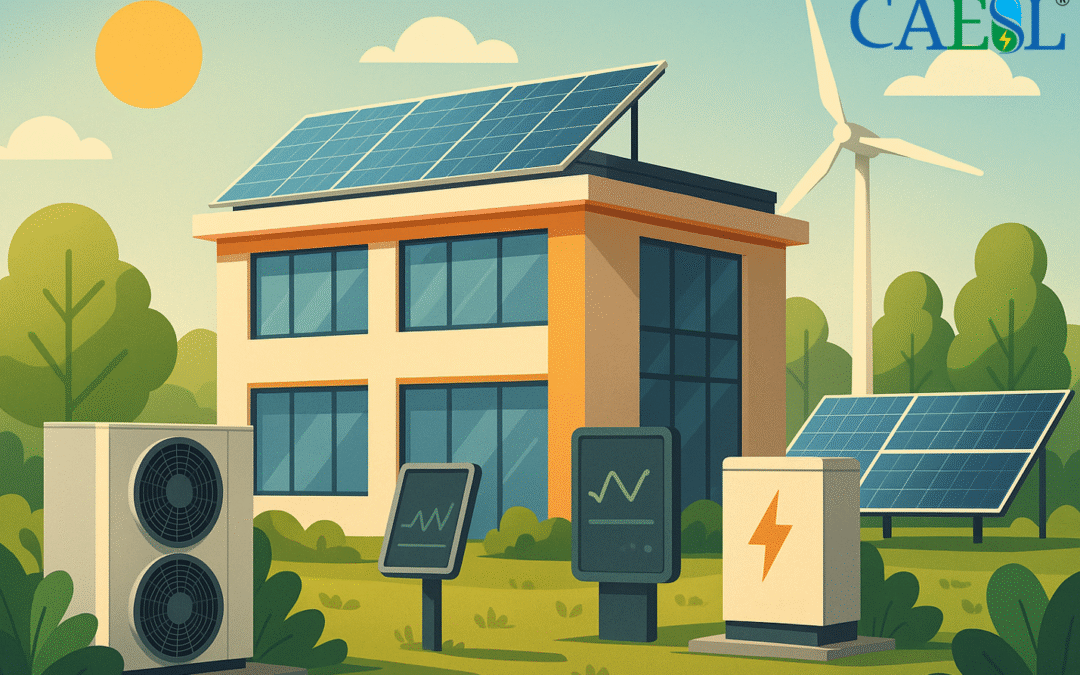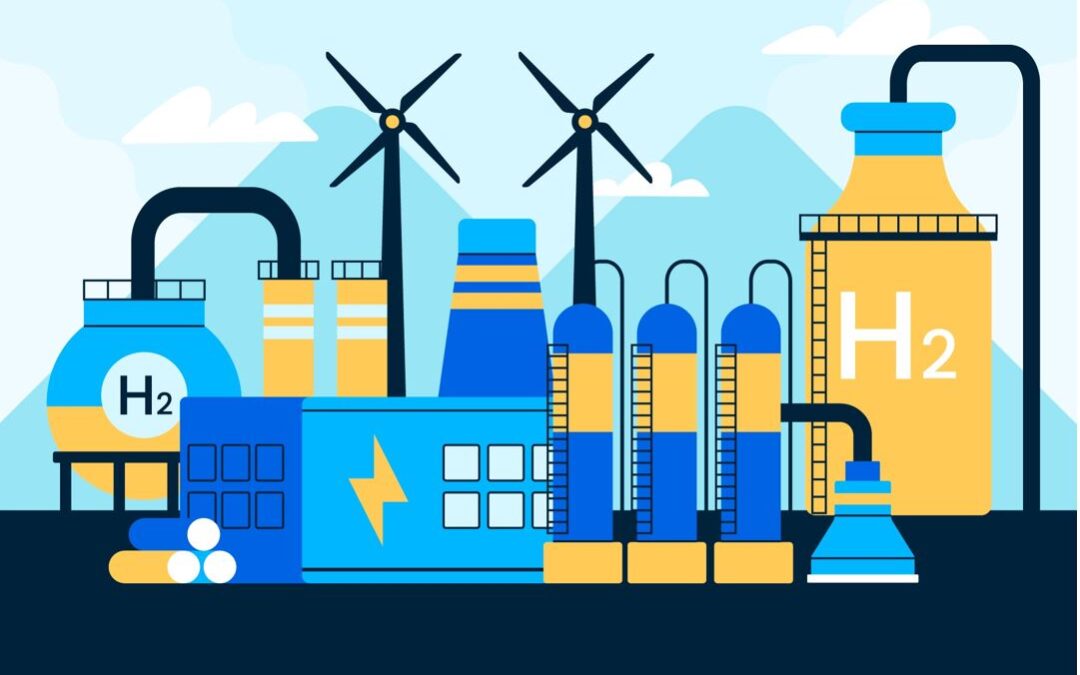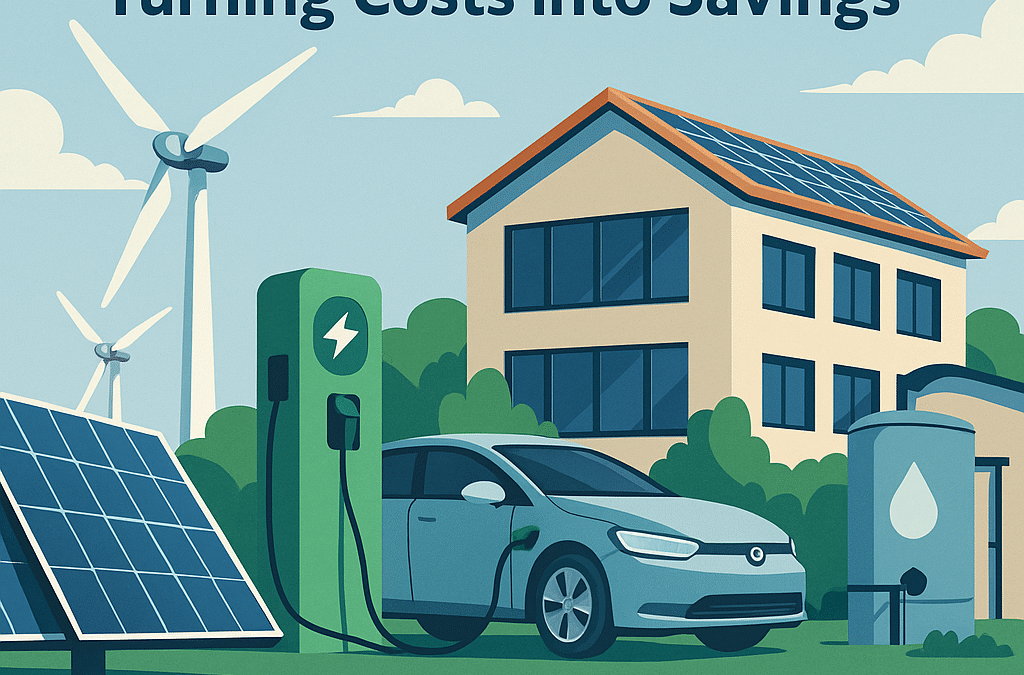Heat Pumps: A Smarter, Low-Carbon Heating Solution for a Modern Future
As the UK prepares to ban gas boilers in all new homes soon, the need for sustainable, efficient heating solutions is accelerating. At the forefront of this transformation are heat pumps — systems that can reduce your carbon footprint and slash energy bills.
How Do Heat Pumps Work?
Unlike traditional boilers that burn gas or oil to produce heat, heat pumps operate electrically and transfer heat from one place to another. Here’s the process in brief:
- A special refrigerant absorbs heat from an external source (air or ground) and turns into a gas.
- The gas passes through a compressor which raises its temperature further.
- The heat is then transferred via your central-heating or hot-water system.
- The refrigerant cools, turns back into a liquid and the cycle continues.
Because the system harnesses ambient heat rather than generating it from scratch, heat pumps can deliver three to four units of heat for every unit of electricity used, depending on conditions.
Types of Heat Pumps
In the UK the two main types are:
- Air Source Heat Pumps (ASHP): These extract heat from the outdoor air. They are generally easier to install and suit a wide variety of homes.
- Ground Source Heat Pumps (GSHP): These draw heat from the ground (via buried loops) and tend to offer consistent performance year-round — ideal for properties with sufficient outdoor space.
The best choice depends on your property type, available space, insulation level and energy demand. At CAESL we carry out a full assessment and use our AI-based modelling to recommend the most efficient and cost-effective option for you.
Why Choose a Heat Pump?
Investing in a heat pump system offers multiple advantages:
- Lower carbon emissions – Heat pumps help reduce reliance on fossil-fuel heating and make a major contribution to your low-carbon journey.
- Cooling capability – Many modern heat pumps can also provide cooling in summer, making them a year-round solution.
- Long life span – With fewer moving parts than a conventional boiler, they tend to require less maintenance and deliver reliable service for 15-25 years (or more).
- Lower running costs – Especially when gas prices are high (as they often are), switching to an electrically-driven system can bring meaningful savings.
- Government grants available – The current UK scheme for England & Wales is the Boiler Upgrade Scheme (BUS), which provides upfront grant support rather than ongoing payments.
- Under BUS you can currently receive £7,500 towards an air-source or ground-source heat pump. (GOV.UK)
- The BUS also offers £5,000 for biomass boilers (though biomass is less common and subject to stricter eligibility). (find-government-grants.service.gov.uk)
When paired with on-site renewable energy (for example solar PV), a heat pump system can approach 100% carbon-free heating for your home or business.
Integrating with Renewables & Smart Energy
For maximum benefit we recommend pairing a heat pump with renewable generation such as solar panels. Here’s why:
- The electricity your solar system produces can power your heat pump — reducing your grid consumption and lowering your utility bills.
- Smart energy analytics (which we provide at CAESL) can optimise how and when the heat pump runs, and coordinate with energy storage or time-of-use tariffs.
- You create a coherent, future-proof low-carbon ecosystem: solar generation + electro-heating + heat pump baseline = reduced reliance on fossil fuels and grid imports.
What’s New: Scheme & Policy Updates
A few key updates to be aware of:
- The Boiler Upgrade Scheme (BUS) is now the main grant route for heat pump installations in England & Wales. (Ofgem)
- From 1 April 2022 to 31 March 2027, heat-pump and biomass-boiler installations have 0 % VAT on the installation of energy-saving materials. (Ofgem)
- The budget for BUS is increasing, with a confirmed budget of £295 million for the 2025/26 financial year. (Ofgem)
Given the pace of change in policy and technology, it’s wise to consult a specialist (like CAESL) early in your project to ensure you fully qualify for available support and that your system meets the latest standards.
Let’s Plan Your Low-Carbon Heating System
Whether you’re replacing an older heating system or building new, we at CAESL are ready to help design your bespoke heat-pump solution — tailored to your property, energy demand, and long-term sustainability goals.
📩 Get in touch with our team today to book your assessment and find out how/if heat-pump installation can deliver comfort, savings and future-proof performance.




